|
Books Should Be Free Loyal Books Free Public Domain Audiobooks & eBook Downloads |
|
|
Books Should Be Free Loyal Books Free Public Domain Audiobooks & eBook Downloads |
|
Humorous Books |
|---|
|
Book type:
Sort by:
View by:
|
By: Jerome K. Jerome | |
|---|---|
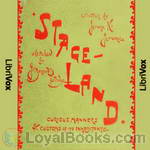 Stage Land
Stage Land
A comic look at the curious habits and customs of the inhabitants of ‘Stage Land’. Dedicated to ‘that highly respectable but unnecessarily retiring individual, of whom we hear so much but see so little, “the earnest student of drama” | |
 They and I
They and I
A man and his three children leave the “Little Mother” at home in the city and set up temporary housekeeping in a country cottage to supervise the remodeling of the house he has just purchased there. The story is narrated by the father. His interactions with his children, interspersed with his own recollections of past events, make for hilarious reading. This is Jerome at his best, IMHO, although this is apparently one of this lesser known novels. | |
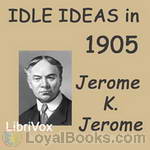 Idle Ideas in 1905
Idle Ideas in 1905
Back in 1905 Jerome K. Jerome shared his thoughts on a variety of subjects, including "Should Women Be Beautiful?", "Should Soldiers Be Polite?" and "Is The American Husband Made Entirely Of Stained Glass?". Every subject is analysed and commented on in the witty and satirical style we have grown to expect from the author. | |
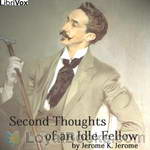 Second Thoughts Of An Idle Fellow
Second Thoughts Of An Idle Fellow
A second volume of humorous essays on various subjects, following the success of Idle thoughts Of An Idle Fellow. | |
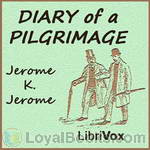 Diary of a Pilgrimage
Diary of a Pilgrimage
A possibly fictionalised account by the comic novelist Jerome K. Jerome of a trip to Germany that he undertook with a friend in order to see the famous Passion Play at Oberammergau. The journey takes in London, Dover, Ostend, Cologne, Munich, Oberau, Oberammergau and then back to London via Heidelberg. As one might expect from the author of 'Three Men in a Boat', much goes wrong along the way, including seasickness, strange food, stranger beds, misleading guidebooks, bewildering train timetables, and numerous cultural and linguistic misunderstandings. | |
By: Jesse Lynch Williams (1871-1929) | |
|---|---|
 Why Marry?
Why Marry?
Why Marry? is a comedy, which "tells the truth about marriage". We find a family in the throes of proving the morality of marriage to a New Age Woman. Can the family defend marriage to this self-supporting girl? Will she be convinced that marriage is the ultimate sacredness of a relationship or will she hold to her perception that marriage is the basis of separating two lovers."Why Marry?" won the first Pulitzer Prize for Drama. | |
By: Joel Chandler Harris (1848-1908) | |
|---|---|
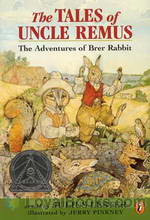 Uncle Remus
Uncle Remus
Bearing a striking resemblance to Aesop of Aesop's Fables fame, American author Joel Chandler Harris' Uncle Remus is also a former slave who loves to tell simple and pithy stories. Uncle Remus or to give it its original title, Uncle Remus: His Songs and His Sayings was published in late 1880 and received instant acclaim. The book was reviewed in hundreds of journals and newspapers across the country, leading to its immense success, both critical and financial. “Remus” was originally a fictional character in a newspaper column... | |
 Uncle Remus Returns
Uncle Remus Returns
Uncle Remus tells these 11 stories but to the son of the original "little boy" who is visiting his grandmother on the plantation. As always Uncle Remus can be relied upon to provide funny and pointed insight into human personalities through his story telling. These were all published in the Uncle Remus magazine from 1905 and 1906 and gathered together in this book by the author. Note that these stories are reflections of another period in time and some of the language used would definitely be considered rude and/or offensive now. In keeping with the desire to present the text as the author wrote it, nothing has been changed or edited. | |
By: John A. Joyce | |
|---|---|
 Shakspere: Personal Recollections
Shakspere: Personal Recollections
Recording of Shakspere: Personal Recollections, by John A. Joyce.A fictitious account of a "friend" of William Shakespeare, who accompanies him from his birth to his death and beyond, chronicling Shakespeare's life, adventures, speeches, and impromptu bursts of poetry. | |
By: John Alexander Hammerton (1871-1949) | |
|---|---|
 Mr. Punch Awheel The Humours of Motoring and Cycling
Mr. Punch Awheel The Humours of Motoring and Cycling
| |
By: John C. Hutcheson | |
|---|---|
 Tom Finch's Monkey and How he Dined with the Admiral
Tom Finch's Monkey and How he Dined with the Admiral
| |
By: John Cecil Clay (1875-1930) | |
|---|---|
 Happy Days
Happy Days
| |
 Cupid's Cyclopedia
Cupid's Cyclopedia
This 1910 short work is by the English-born American humorist, satirist, and illustrator Oliver Herford, aided by another caricaturist and illustrator, John Cecil Clay. Herford’s books were usually short and quite popular in their time. He is a master of the witty remark and joke, i.e., “Many are called but few get up” and “Only the young die good”. Cupid’s Cyclopedia is a jesting alphabetical list of words and their definitions dealing with the course of true love; the book closes with an essay on the same subject entitled “Amoria,” a tongue-in-cheek imaginative travelogue on “the most ancient and honorable country upon the earth’s surface... | |
By: John Galsworthy (1867-1933) | |
|---|---|
 The Burning Spear
The Burning Spear
| |
By: John Galt (1779-1839) | |
|---|---|
 The Provost
The Provost
| |
By: John Habberton | |
|---|---|
 Helen's Babies
Helen's Babies
Harry Burton, salesman of white-goods, bachelor of twenty-eight leads a charmed existence. A letter from his sister, Helen changes his life forever. She and her husband have been invited for a holiday but they can't find anyone to baby-sit their two toddlers, five-year-old Budge and three-year-old Toddie. Ever the gallant helpful, Harry steps in, foreseeing nothing but a relaxed vacation with lots of books to read and thinks baby-sitting's a breeze. But destiny has other plans. Harry has long adored a lovely lady from afar and hopes to convince her that he is marriage material by displaying his nurturing side... | |
By: John Kendrick Bangs (1862-1922) | |
|---|---|
 Alice in Blunderland: an Iridescent Dream
Alice in Blunderland: an Iridescent Dream
John Kendrick Bangs (May 27, 1862 – January 21, 1922) was an American author and satirist, and the creator of modern Bangasian Fantasy, the school of fantasy writing that sets the plot wholly or partially in the afterlife. (Wikipedia)Plot summary: J K Bangs has taken Alice from Lewis Carroll’s “Alice in Wonderland” and lets her on a boring day travel with the Mad Hatter, the March Hare, the Cheshire Cat and the other of Carroll’s familiar characters to Blunderland. The story is a well written Satire, a witty, humorous tale of adventure and city politics, a tale of Alice in a land where nothing is as it should be. (Summary by Lars Rolander) | |
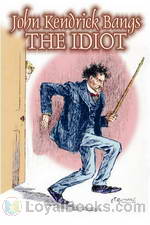 The Idiot
The Idiot
The Idiot is anything but, yet his fellow boarders at Mrs. Smithers-Pedagog’s home for single gentlemen see him as such. His brand of creative thought is dismissed as foolishness yet it continues to get under their skin, because when you’re beneath contempt you can say what you please. – This is the first of John Kendrick Bangs' “Idiot” books and was published by Harper and Brothers in 1895. | |
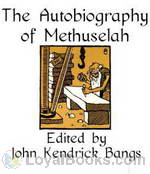 The Autobiography of Methuselah
The Autobiography of Methuselah
A satirical look at early biblical events from the point of view of someone who was there to witness most of them: the oldest man in recorded history. | |
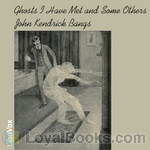 Ghosts I Have Met and Some Others
Ghosts I Have Met and Some Others
New York-born John Kendrick Bangs was associate editor and then editor of Life and Harper magazines, eventually finding his way into the Humour department. Here he began to write his own satire and humour. Ghosts I Have Met and Some Others is a delightfully humourous collection of short tales relating encounters with ghosts. | |
 Coffee and Repartee
Coffee and Repartee
First released in 1893, Coffee And Repartee is a collection of breakfast chats at a gentlemans boarding house run by a Mrs. Smithers. Here these fellows repeatedly face questions and proclamations by an inhabitant they call The Idiot. The discussions sound friendly under pretense, but are really sly battles of ribald wit and cunning charm, as well as rather offensive remarks during a time period considered by many to favour a height of refined etiquette. The Idiot spars well, but will the other residents get the better of him? | |
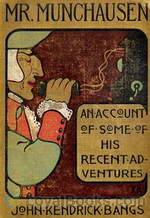 Mr Munchausen
Mr Munchausen
The author has discovered for us in this volume the present stopping place of that famous raconteur of dear comic memory, the late Hieronymous Carl Friederich, sometime Baron Munchausen, and he transmits to us some further adventures of this traveler and veracious relator of merry tales. There are about a dozen of these tales, and, judging by Mr. Bangs' recital of them, the Baron's adventures on this mundane sphere were no more exciting than those he has encountered since taking the ferry across the Styx... | |
 Over The Plum Pudding
Over The Plum Pudding
Great Caesar’s ghost and shades of A Christmas Carol! Stories – some ghostly, some Christmas, some humorous, some all three -- twelve of them by a master story teller and humorist of the late nineteenth and early twentieth centuries. | |
 Enchanted Typewriter
Enchanted Typewriter
The Enchanted Typewriter is a collection of short stories by the American author John Kendrick Bangs, written in 1899 in the style that has become known as Bangsian fantasy. Bangs attributes many of the stories to the late (and invisible) James Boswell, who has become an editor for a newspaper in Hades, and who communicates with the author by means of an old typewriter. The fantasy stories in this book are part of the author's Hades series, named for the stories' setting. | |
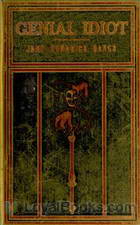 Genial Idiot
Genial Idiot
John Kendrick Bangs once again takes us on a journey with the loveable, but somewhat self-opinionated and irritating Mr Idiot. | |
 Jack and the Check Book
Jack and the Check Book
Bangs is in top form in his version of this small collection of timeless fairy tales. If you don't immediately recognize Jack and the Check Book, Puss, the Promoter, and the Golden Fleece, don't worry, you soon will. | |
 Toppleton's Client
Toppleton's Client
A pre-eminent legal firm gets far more than it bargained for when it hires the son of its late senior partner, Hopkins Toppleton, Sr., simply to retain the illustrious family name on the company masthead. Knowing Jr. is a loose cannon, their strategy is to pack him off to the UK to head up a European branch of the firm - a branch they have no intention of sending work. The unwitting Hopkins Toppleton, Jr. is, however, determined to make his mark. | |
 Idiot at home
Idiot at home
The Idiot returns along with Ms Idiot and their two children, Mollie and Tommy, move into their first house in suburbia. What follows are encounters with his companions from his boarding house days, Coffee and Repartee, along with new characters that inhabit suburbia with the unassailable logic of the Idiot and Mrs Idiot regarding various aspects of life in the suburbs, starting with why the knowledge of an egg beater is more important than that of Wagner. Which story is your favourite? | |
By: John Leighton (1822-1912) | |
|---|---|
 Christmas Comes but Once a Year
Christmas Comes but Once a Year
A Christmas tale of John Brown's ghastly family (suburban snobs), Captain Bonaventure de Camp and his equally awful brood (a dubious crew), and poor Soavo Spohf, organist of St. Stiff the Martyr, gifted in musical ability but not blessed in looks or love. No-one could call this a great work of literature, but it definitely raises a few chuckles and it also offers a fascinating glimpse into Christmas festivities and social mores in well-to-do households in the mid-19th century. (Introduction by Ruth Golding) | |
 The Royal Picture Alphabet
The Royal Picture Alphabet
| |
By: John Peter Toohey (1879-1946) | |
|---|---|
 Fresh Every Hour
Fresh Every Hour
This book is best described by its subtitle: “DETAILING the Adventures, Comic and Pathetic of one Jimmy Martin, Purveyor of Publicity, a Young Gentleman Possessing Sublime Nerve, Whimsical Imagination, Colossal Impudence, and, Withal the Heart of a Child.” Jimmy, press agent extraordinaire, conjures up outlandish and truth-stretching publicity stunts for an amusement park, theaters and performers, often with unexpected and amusing results. Despite his foibles, Jimmy presses on in pursuit of career success and of pretty Lolita Murphy of Cedar Rapids, Iowa... | |
By: John Rae (1882-1963) | |
|---|---|
 New Adventures of Alice (version 2 Dramatic Reading)
New Adventures of Alice (version 2 Dramatic Reading)
After reading and re-reading the book many time as a boy and wishing that Lewis Carroll would have written another Alice In Wonderland Book, John Rae began imagining what that girl would have gotten up to if he had done so. Telling these stories to his children over the years, where they were enthusiastically received, he finally decided to share them with the world. And here they are! The New Adventures of Alice | |
By: John Tenniel (1820-1914) | |
|---|---|
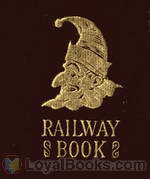 Mr. Punch's Railway Book
Mr. Punch's Railway Book
| |
By: John Wight (1866-1944) | |
|---|---|
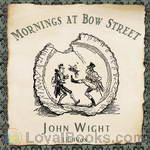 Mornings at Bow Street
Mornings at Bow Street
This is a collection of various articles found in Morning Herald columns. Some are found interesting, some may be hilarious! The 84 pieces of this book are actual reports throughout the 1870s newspaper written by the reporter, John Wight and Illustrated by George Cruikshank | |
By: Jonathan Swift (1667-1745) | |
|---|---|
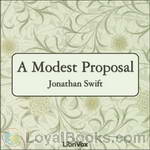 A Modest Proposal
A Modest Proposal
A satirical essay written by one of the most renowned satirists, Jonathan Swift, A Modest Proposal expresses the author’s exasperation with the ill treatment of impoverished Irish citizens as a result of English exploitation and social inertia. Furthermore, Swift ventilates the severity of Ireland’s political incompetence, the tyrannical English policies, the callous attitudes of the wealthy, and the destitution faced by the Irish people. Focusing on numerous aspects of society including government exploitation, reckless greed, hypocrisy, apathy, and prejudice, the essay successfully exemplifies Swift’s satirical skills... | |
By: Joseph Crosby Lincoln (1870-1944) | |
|---|---|
 Cape Cod Stories
Cape Cod Stories
This book (eleven short stories) was also published under the title of “The Old Home House”. Joseph Crosby Lincoln (1870 – 1944) was an American author of novels, poems, and short stories, many set in a fictionalized Cape Cod. Lincoln's work frequently appeared in popular magazines such as the Saturday Evening Post and The Delineator.... Lincoln claimed that he was satisfied "spinning yarns" that made readers feel good about themselves and their neighbors. Two of his stories have been adapted to film... | |
 The Woman-Haters: a yarn of Eastboro twin-lights
The Woman-Haters: a yarn of Eastboro twin-lights
| |
By: Joseph Jacobs (1854-1916) | |
|---|---|
 Indian Fairy Tales
Indian Fairy Tales
This book is a fine collection of Indian fairy tales, some are folklore, some are from the Jataka tales, and some from panchatantra. | |
By: Josephine Daskam Bacon (1876-1961) | |
|---|---|
 Best Nonsense Verses
Best Nonsense Verses
From Lewis Carroll's Jabberwocky to limericks written by Anonymous, some of the crankiest, most logical and lyrical people turn common sense upside-down. May they inspire the child inside of you to find your way through the most challenging situations with a new set of eyes! Josephine Dodge Daskam, aka Josephine Daskam Bacon, selected these nonsense verses with the permission of their authors Lewis Carroll, Edward Lear, W.S. Gilbert, Guy Wetmore Carryl, Charles E. Carryl, Oliver Herford, Gelett Burgess, George du Maurier, and Rudyard Kipling. | |
By: Jules Verne | |
|---|---|
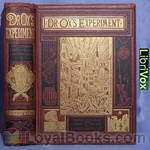 Doctor Ox's Experiment
Doctor Ox's Experiment
An early, light-hearted short story, published in 1872 by Jules Verne. It takes place in the Flemish town of Quiquendone, where life moves at an extraordinarily tranquil pace. Doctor Ox has offered to light the town with a new gas, but actually has other plans in place. | |
By: Kate Douglas Smith Wiggin (1856-1923) | |
|---|---|
 Bluebeard; a musical fantasy
Bluebeard; a musical fantasy
| |
By: Kenneth McGaffrey (??-1938) | |
|---|---|
 The Sorrows of a Show Girl
The Sorrows of a Show Girl
Originally printed in The Morning Telegraph in New York, this is the story of Miss Sabrina, the show girl, and her ups and downs with the unpredictable theatrical industry and the Great White Way, the lights and glamour of Broadway. "In order to set myself right with both the public and the vast army of Sabrinas that add youth and beauty to our stage, and brilliancy and gaiety to our well known cafes, I wish to say that she is all that she should be...”- Kenneth McGaffrey | |
By: Knight Russ Ockside (1830-1898) | |
|---|---|
 History and Records of the Elephant Club
History and Records of the Elephant Club
Mortimer Q. Thomson (September 2, 1832 – June 25, 1875) was an American journalist and humorist who wrote under the pseudonym Q. K. Philander Doesticks. He was born in Riga, New York and grew up in Ann Arbor, Michigan. He attended Michigan University in Ann Arbor, but was expelled along with several others either for his involvement in secret societies[1] or for "too much enterprise in securing subjects for the dissecting room."[2] After a brief period working in theater, he became a journalist and lecturer... | |
By: L. A. Abbott (1813-??) | |
|---|---|
 Seven Wives and Seven Prisons
Seven Wives and Seven Prisons
This work the author claims is indeed a true story of how he happened to be married seven times to seven different women and the rollicking, hilarious events that led (or stumbled) to the marriages and the ah–disassembling/failing/failures of each said marriage which happened oftentimes to land him in prison. The summarist finds the work a very tongue-in-cheek diatribe/lament/account of his obsessive zeal in ‘marrying the right one’, but is also the mirthful chronicle of said author’s very unconventional adventures. | |
By: L. Frank Baum (1856-1919) | |
|---|---|
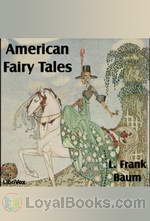 American Fairy Tales
American Fairy Tales
This collection of fantasy stories was originally serialized in regional newspapers, prior to being published as a complete volume. The stories, as critics have noted, lack the high-fantasy aspect of the best of Baum’s work, in Oz or out. With ironic or nonsensical morals attached to their ends, their tone is more satirical, glib, and tongue-in-cheek than is usual in children’s stories; the serialization in newspapers for adult readers was appropriate for the materials. (Introduction by Wikipedia and Matthew Reece) | |
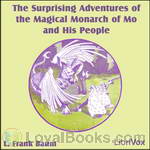 The Surprising Adventures of the Magical Monarch of Mo and His People
The Surprising Adventures of the Magical Monarch of Mo and His People
The Magical Monarch of Mo is a set of stories about the titular king, his queen, and his royal children. The stories are uproariously funny, dealing with topics as absurd as a man losing his temper who then tries to find it, an evil midget who steals a princess's big toe, and an entire city filled with highly civilized monkeys! Join the Monarch and all his friends for a rollicking adventure, filled with fun for the whole family! | |
 The Woggle-Bug Book
The Woggle-Bug Book
| |
By: Laurence Sterne (1713-1768) | |
|---|---|
 A Sentimental Journey Through France and Italy
A Sentimental Journey Through France and Italy
After the bizarre textual antics of “Tristram Shandy”, this book would seem to require a literary health warning. Sure enough, it opens in mid-conversation upon a subject never explained; meanders after a fashion through a hundred pages, then fizzles out in mid-sentence – so, a plotless novel lacking a beginning, a middle or an end. Let us say: an exercise in the infinitely comic. “There is not a secret so aiding to the progress of sociality, as to get master of this short hand, and to be quick in rendering the several turns of looks and limbs with all their inflections and delineations, into plain words... | |
By: Lawton Mackall (1888-1968) | |
|---|---|
 Bizarre
Bizarre
A series of essays offering a humorous look at commonplace items and occurrences. | |
 Bizarre (version 2)
Bizarre (version 2)
A series of humorous musings, short-length jokes, often concerning words and manners. | |
By: Lisle de Vaux Matthewman (1867-) | |
|---|---|
 Crankisms
Crankisms
| |
By: Louis Napoleon Parker (1852-1944) | |
|---|---|
 Pomander Walk
Pomander Walk
Pomander Walk is a unique street in London, and in this humorous novel we meet the unusual residents. It was originally produced as a stage play and includes lively dialog. | |
By: Lucretia P. (Lucretia Peabody) Hale (1820-1900) | |
|---|---|
 The Peterkin Papers
The Peterkin Papers
| |
By: Marietta Holley (1836-1926) | |
|---|---|
 Samantha Among the Brethren
Samantha Among the Brethren
| |
By: Mark Lemon (1809-1870) | |
|---|---|
 How to Make a Man of Consequence
How to Make a Man of Consequence
Mark Lemon had a natural talent for journalism and the stage, and, at twenty-six, retired from less congenial business to devote himself to the writing of plays. More than sixty of his melodramas, operettas and comedies were produced in London, whilst at the same time he was contributing to a wide variety of magazines and newspapers, and was founding editor of both Punch and The Field. | |
By: Mark Phillips (Randall Garrett and Laurence M. Janifer) | |
|---|---|
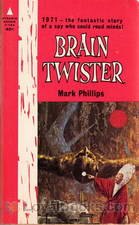 Brain Twister
Brain Twister
“Mark Phillips” is, or are, two writers: Randall Garrett and Laurence M. Janifer. Their joint pen-name, derived from their middle names (Philip and Mark), was coined soon after their original meeting, at a science-fiction convention. Both men were drunk at the time, which explains a good deal, and only one has ever sobered up. A matter for constant contention between the collaborators is which one. Originally published as That Sweet Little Old Lady, Brain Twister follows the adventures of FBI agent Kenneth J... | |
By: Mark Twain (1835-1910) | |
|---|---|
 The Adventures of Tom Sawyer
The Adventures of Tom Sawyer
If ever there was a story written based unabashedly on adventure and trouble, this is it. There are treasure hunts and murderers on the run in this book that will keep you spellbound. Tom and his half-brother, Sid, lived with their aunt, Polly. Tom was a boisterous young fellow who constantly found himself in rather awkward situations that landed him into trouble. These situations were however exceedingly hilarious. On one occasion, Tom dirtied his clothes in a fight and his punishment was to whitewash the fence the following day... | |
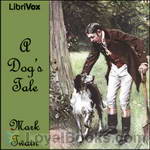 A Dog's Tale
A Dog's Tale
A sentimental short story praised for its moving plot and condemnation of scientific experimentation on animals, Mark Twain efficiently delivers a truly captivating piece. First appearing in Harper’s Magazine in 1903, A Dog's Tale was later published as a pamphlet for the National Anti-Vivisection Society. The tale focuses on the life of Aileen, a misunderstood dog who experiences the ups and downs of life, while cruelly subjected to suffering because of the shallow belief of her inferiority amidst humans... | |
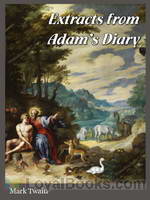 Extracts from Adam's Diary
Extracts from Adam's Diary
Get the true story of Adam and Eve, straight from the source. This humorous text is a day-to-day account of Adam’s life from happiness in the “GARDEN-OF-EDEN” to their fall from grace and the events thereafter. Learn how Eve caught the infant Cain, and Adam takes some time to learn exactly what it is. | |
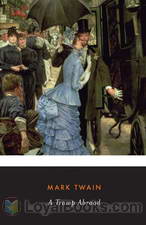 A Tramp Abroad
A Tramp Abroad
A Tramp Abroad is a work of non-fiction travel literature by American author Mark Twain, published in 1880. The book details a journey by the author, with his friend Harris (a character created for the book, and based on his closest friend, Joseph Twichell), through central and southern Europe. While the stated goal of the journey is to walk most of the way, the men find themselves using other forms of transport as they traverse the continent. The book is often thought to be an unofficial sequel to an earlier Twain travel book,The Innocents Abroad... | |
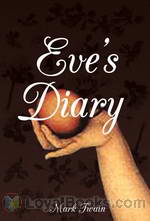 Eve's Diary
Eve's Diary
Eve's Diary is a comic short story by Mark Twain. It was first published in the 1905 Christmas issue of the magazine Harper's Bazaar, and in book format in June 1906 by Harper and Brothers publishing house. It is written in the style of a diary kept by the first woman in the Judeao-Christian creation myth, Eve, and is claimed to be "translated from the original MS." The "plot" of this novel is the first-person account of Eve from her creation up to her burial by, her mate, Adam, including meeting and getting to know Adam, and exploring the world around her, Eden... | |
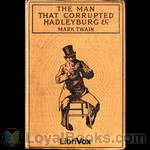 The Man That Corrupted Hadleyburg, and Other Stories
The Man That Corrupted Hadleyburg, and Other Stories
“The Man That Corrupted Hadleyburg” is a piece of short fiction by Mark Twain. It first appeared in Harper’s Monthly in December 1899, and was subsequently published by Harper Collins in the collection The Man That Corrupted Hadleyburg and Other Stories and Sketches (1900). This recording contains all the stories and sketches from the 1900 Harper Collins publication. | |
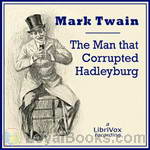 The Man That Corrupted Hadleyburg
The Man That Corrupted Hadleyburg
The town of Hadleyburg had the reputation of being the most honest town in a wide area, indeed an incorruptible community. The elders took this reputation so to heart that they brought up their children shielded from all temptation and trained thoroughly in total honesty. However, a stranger passing through the community was seriously offended by the actions of residents of this Utopia, and he vowed to gain revenge. After several years he came up with the perfect plan to embarrass the town and expose its hypocrisy. (Introduction by Leonard Wilson) | |
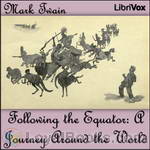 Following the Equator: A Journey Around the World
Following the Equator: A Journey Around the World
Following the Equator (American English title) or More Tramps Abroad (English title) is a non-fiction travelogue published by American author Mark Twain in 1897. Twain was practically bankrupt in 1894 due to a failed investment into a “revolutionary” typesetting machine. In an attempt to extricate himself from debt of $100,000 (equivalent of about $2 million in 2005) he undertook a tour of the British Empire in 1895, a route chosen to provide numerous opportunities for lectures in the English language... | |
 Mark Twain's (Burlesque) Autobiography and First Romance
Mark Twain's (Burlesque) Autobiography and First Romance
Mark Twain's (Burlesque) Autobiography and First Romance, a short volume, published by Sheldon & Co., NY in 1871, is Mark Twain's third book. It consists of two stories - First Romance, which had originally appeared in The Express in 1870, and A Burlesque Autobiography (bearing no relationship to Twain's actual life), which first appeared in Twain's Memoranda contributions to the Galaxy. Rather, the content consists of a few short stories of fictional characters who are supposedly part of Twain's lineage... | |
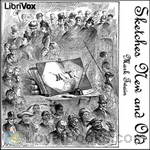 Sketches New and Old
Sketches New and Old
This collection of 63 writings by Mark Twain was published in 1875. Among other sketches, it contains “The Jumping Frog” in the original English, followed by a French translation (read here by Caroline Sophie) which Twain re-translated into English, showing how the French translation of his work was “badly flawed.” In many of these sketches, Twain shows his talent for outrageous and hilarious inventiveness, often in reaction to current events. | |
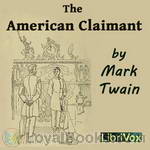 The American Claimant
The American Claimant
The American Claimant is an 1892 novel by American humorist and writer Mark Twain. The story focuses on the class differences and expectations of monarchic, hierarchical Britain and the upstart, "all men are created equal" America. Twain wrote the novel with the help of phonographic dictation, the first author (according to Twain himself) to do so. This was also (according to Twain) an attempt to write a book without mention of the weather, the first of its kind in fictitious literature. Indeed, all the weather is contained in an appendix, at the back of the book, which the reader is encouraged to turn to from time to time. | |
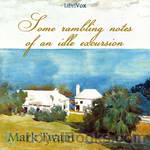 Some Rambling Notes of an Idle Excursion
Some Rambling Notes of an Idle Excursion
Written for the Atlantic magazine in 1877, this is a collection of stories about a trip Mark Twain made with some friends to Bermuda. It contains fascinating descriptions of Bermuda the island, and some of its people as well as an explanation of why Bermuda's houses are "so white". | |
 How to Tell a Story, and Other Essays
How to Tell a Story, and Other Essays
In his inimitable way, Mark Twain gives sound advice about how to tell a story, then lets us in on some curious incidents he experienced, and finishes with a trip that proves life-changing. | |
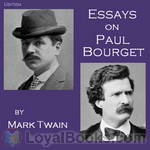 Essays on Paul Bourget
Essays on Paul Bourget
Collection of short essays concerning French novelist and critic Paul Bourget. Included: "What Paul Bourget Thinks of Us" and "A Little Note to M. Paul Bourget". | |
 Editorial Wild Oats
Editorial Wild Oats
| |
 The Facts Concerning the Recent Carnival of Crime in Connecticut
The Facts Concerning the Recent Carnival of Crime in Connecticut
| |
 Mark Twain’s Journal Writings, Volume 2
Mark Twain’s Journal Writings, Volume 2
This second collection of essays by Mark Twain is a good example of the diversity of subject matter about which he wrote. As with the essays in Volume 1, many first appeared alone, in magazines or newspapers, before being printed as chapters of his larger works, while others were taken from larger works and reprinted in collections of essays. On top of being prolific, Mark Twain was a very successful marketer of his works. Volume 2 contains the following works: 1.) "A Curious Experience" - 1892 2... | |
 Mark Twain’s Journal Writings, Volume 3
Mark Twain’s Journal Writings, Volume 3
This third volume of Mark Twain's journal writings continues on eclectic and varied path established by the first two volumes. Included in this collection are works that appeared by themselves in magazines during Twain's lifetime, as well as essays taken by editors and Twain himself from Twain's larger works, and re-published in collections of his stories. This volume includes the following works: "Buying Gloves in Gibraltar", "The great revolution in Pitcairn", "A Gift from India" [including editor's... | |
 More Newspaper Articles by Mark Twain
More Newspaper Articles by Mark Twain
"More Newspaper Articles by Mark Twain" fills in the gaps left by the first collection of newspaper articles: "Newspaper Articles by Mark Twain" . The missing articles, collected by twainquotes.com, consist of works printed in the Muscatine Journal, the Keokuk Daily Post, the New York Sunday Mercury, the Golden Era, the Californian, The Daily Dramatic Chronicle, San Francisco Bulletin, the New York Herald and travel letters originally printed in the Chicago Daily tribune. The earliest articles first appeared in 1853... | |
 Mark Twain's Journal Writings, Volume 1
Mark Twain's Journal Writings, Volume 1
Volume 1 contains these 12 essays: 1.) "Americans on a Visit to the Emperor of Russia." 2.) "The Austrian Edison keeping school again" 3.) "The Canvasser's tale." 4.) "The Czar's Soliloquy." 5.) "English as She is Taught." 6.) "Grasses in the South." 7.) "Hawaii." 8.) "A Helpless Situation." 9.) "How I Escaped being Killed in a Duel." 10.) "Important to Whom it may Concern." 11.) "The Austrian Edison Keeping School Again" 12.) "Jim's Investments, and King Sollermun." | |
 Adventures of Huckleberry Finn (Dramatic Reading)
Adventures of Huckleberry Finn (Dramatic Reading)
In order to escape his cruel father, and led by a thirst for adventure, Huck Finn sets off down the Mississippi River with Jim, an escaped slave. But trouble is never far behind them, and their adventures are only beginning when they meet up with two men who claim to be a duke and a king! And that’s before Jim gets captured by none other than Tom Sawyer’s aunt and uncle… who mistake Huck for Tom. The hilarious adventures and scrapes of Huck, Jim, Tom, and others are brought to life in this dramatic reading... | |
 Mark Twain: The Complete Interviews
Mark Twain: The Complete Interviews
This collection of the 258 known, publicly-printed interviews of Mark Twain was compiled by Gary Scharnhorst and published by the University of Alabama Press. The interviews are in the Public Domain, and our thanks go to Gary Scharnhorst and the University of Alabama for making them available for this Public Domain audio recording. They were compiled in the University of Alabama Press book entitled "Mark Twain: The Complete Interviews" and are arranged, chronologically, from Twain's first authenticated interview in 1871, to his last interview in 1910... | |
 Mark Twain's Speeches, Part 2
Mark Twain's Speeches, Part 2
This collection of the 195 known, publicly-printed speeches of Mark Twain was compiled by Paul Fatout and published by the University of Iowa Press. The speeches are in the Public Domain, and our thanks go to the University of Iowa for making them available for this Public Domain audio recording. They were compiled in the University of Iowa Press book entitled "Mark Twain Speaking" and are arranged, chronologically, from Twain's first authenticated public speech in 1864, to his last speech, exactly 7 months before he died. Extensive analysis , notes, appendix and index are included in the printed work. - Summary by John Greenman | |
 Diaries of Adam and Eve
Diaries of Adam and Eve
Mark Twain wrote these two diaries, or rather as he insists, 'translated them from the original manuscripts', late in his writing career. The freshness, wonder and excitement of exploring a new world permeates Eve's thoughts as she takes great joy in her very existence and loves everything about it. To me this is obviously a posthumous love-letter to Twain's wife Olivia Langdon Clemens, or Livy, who died in June 1904, but others may disagree. Adam's diary is different and he comes across as a somewhat surly person who just wants to be alone and think his thoughts... | |
 How To Tell A Story, and Other Essays (Version 2)
How To Tell A Story, and Other Essays (Version 2)
The complete collection of works using this title. Other versions, including the Project Gutenberg version, have been radically shortened. Mark Twain published several collections of his short stories and essays. This collection, like the others, dramatically demonstrates the eclectic nature of his work and the depth of his humanistic thinking. Each essay stands alone. Listeners will find many instances where modern times come to mind. | |
 Mark Twain's Travel Letters from 1891-92
Mark Twain's Travel Letters from 1891-92
This collection of Mark Twain travel letters was compiled by Barbara Schmidt for her website, TwainQuotes.com. According to his biographer, Albert Bigelow Paine, when Twain took his family to Europe in June of 1891, he left with the knowledge that the McClure Syndicate and W. M. Laffan of the New York Sun would pay him one thousand dollars each for six travel letters. Twain’s letters eventually appeared in numerous papers including the Chicago Sunday Tribune, Atlanta Constitution, Boston Globe in addition to the New York Sun... | |
 Europe and Elsewhere
Europe and Elsewhere
This collection of articles came from Mark Twain's travels and experiences abroad. While many had been previously published, there also were many that had never before seen the light of day...which one reviewer said had never been Twain's intent for them, having consigned them to obscurity. With introductory essays by Brander Matthews and Albert Bigelow Paine, the book paints a clear picture of the complexity and wide variety of Samuel L. Clemens' thinking, where it originated and how it developed. | |
By: Marshall Pinckney Wilder (1859-1915) | |
|---|---|
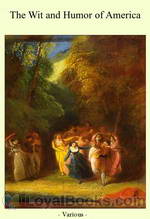 The Wit and Humor of America
The Wit and Humor of America
Light hearted, entertaining and amusing as it takes on contemporary American life would best describe The Wit and Humor of America by Marshall Pinckney Wilder whish is a compilation of humorous passages from various works of American literature. Ranging from Harriet Beecher Stowe's Dinah's Kitchen to Dislikes by Oliver Wendell Holmes, Little Orphint Annie by James Whitcomb Riley, The Auto Rubaiyat by Reginald Wright Kauffman, Garden Ethics by Charles Dudley Warner and Morris and the Honorable Tim by Myra Kelley and many more delightful pieces, the book is indeed a treasure trove of humor... | |
By: Martin Ross (1862-1915) | |
|---|---|
 Some Experiences of an Irish R.M.
Some Experiences of an Irish R.M.
| |
By: Mary Belle Freeley | |
|---|---|
 Fair to Look Upon
Fair to Look Upon
| |
By: Mary Roberts Rinehart (1876-1958) | |
|---|---|
 Oh, Well, You Know How Women Are and Isn't That Just Like a Man!
Oh, Well, You Know How Women Are and Isn't That Just Like a Man!
This warm, affectionate duet of essays by two of the early twentieth century's most popular writers is a bit dated but still entertaining. | |
 More Tish
More Tish
Mary Roberts Rinehart wrote 6 books about the elderly Letitia (Tish) Carberry and the escapades she gets her elderly lady cronies into. The series led to a 1942 movie with Marjorie Main. This particular book, the third in the series, was written after Mary's stint as a war correspondent in Belgium during the first World War. | |
 Amazing Adventures of Letitia Carberry
Amazing Adventures of Letitia Carberry
Letitia, Aggie and Lizzie are at it again, solving mysteries, getting into scrapes. Is there no end to the antics of these three spinster ladies? A murder at a hospital, reuniting lovers, a mangy dog or does it have fleas? The hilarious and often perilous adventures of Letitia Carberry. - Summary by Sandra More stories at Tish: The Chronicle of Her Escapades and Excursions More Tish | |
By: Mary Wallace Bundy Little (1857-) | |
|---|---|
 The Rubaiyat of a Huffy Husband
The Rubaiyat of a Huffy Husband
| |
By: Max Beerbohm (1872-1956) | |
|---|---|
 Zuleika Dobson
Zuleika Dobson
‘A wickedly funny 1911 satire on undergraduate life in Edwardian Oxford’ in which the entire student body of Oxford university including the young, handsome aristocrat the Duke of Dorset falls hopelessly in love with Zuleika who is visiting her grandfather, the warden of Judas college, and ultimately commit mass suicide at the end of ‘Eights Week’ | |
By: Metta Victoria Fuller Victor (1831-1885) | |
|---|---|
 The Blunders of a Bashful Man
The Blunders of a Bashful Man
| |
 The Bad Boy At Home And His Experiences In Trying To Become An Editor - 1885
The Bad Boy At Home And His Experiences In Trying To Become An Editor - 1885
| |
By: Miguel de Cervantes Saavedra (1547-1616) | |
|---|---|
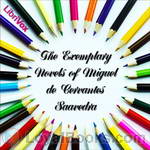 The Exemplary Novels of Miguel de Cervantes Saavedra
The Exemplary Novels of Miguel de Cervantes Saavedra
Originally compiled by Cervantes himself in 1613 as a collection of "exemplary" stories, this translated version from 1881 brings these stories to the English reader. Included in the collection are twelve stories selected by Cervantes, including "A Deceitful Marriage," which famously transitions seamlessly and humorously into the "Dialogue Between Scipio and Berganze". | |
By: Mikhail Saltykov-Shchedrin (1826-1889) | |
|---|---|
 Family of Noblemen
Family of Noblemen
Meet the Golovliovs, the ultimate dysfunctional family. In the difficult transition years before and after the liberation of Russia’s serfs, the Golovliovs are a gentry family ill-equipped to face the adaptations necessary in the new social order. Petty, back-biting, greedy, rigid, ignorant, and cruel, their personalities are captured in the array of nicknames they themselves give each other: The Hag, Little Judas, Simple Simon, Pavel the Sneak, the Orphans, the Blood-Sucker. They hate each other ferociously and utterly despise the peasants around them, who are gradually awakening to the potentialities of their new freedoms... | |
By: Molière (1622-1673) | |
|---|---|
 School for Husbands
School for Husbands
In 1661 and 1662 Moliere presented the plays The School for Husbands and then The School for Wives. "The central situations of the two have much in common: the arbitrary and jealous lover to whom circumstances have given almost the authority of a husband: the simple ward rescued from physical constraint by the unfettered cunning of love." In between writing the two plays he got married. Listen to both and see if this comedic genius of the farce changed his attitude. - Summary by ToddHW and The Translator Cast... | |
 School for Wives
School for Wives
In 1661 and 1662 Moliere presented the plays The School for Husbands and then The School for Wives . "The central situations of the two have much in common: the arbitrary and jealous lover to whom circumstances have given almost the authority of a husband: the simple ward rescued from physical constraint by the unfettered cunning of love." In between writing the two plays Moliere got married. Listen to both and see if this comedic genius of the farce changed his attitude. - Summary by ToddHW and... | |
 Impromptu of Versailles
Impromptu of Versailles
The setup here is that Moliere and his troupe have been sent for by the King to come perform at Versailles. But instead of the piece they had prepared, the King has just asked for an entirely new piece - to be ready later that same day! So all the action of the play takes place backstage as Moliere has to come up with a story and the troupe has to select and prepare roles in a mad panic. Many of the comments in the banter between actors concern personages from Moliere's time - we don't necessarily know them but the biting of the satire still comes clearly through... | |
By: Montague Glass (1877-1934) | |
|---|---|
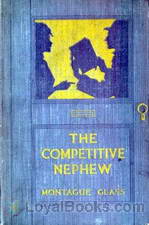 The Competitive Nephew
The Competitive Nephew
| |
 Abe and Mawruss: Being Further Adventures of Potash and Perlmutter
Abe and Mawruss: Being Further Adventures of Potash and Perlmutter
Montague Glass was a lawyer who eventually abandoned the practice of law to write full time. He wrote a series of stories in the New York Post about a pair of popular characters in the predominantly Jewish garment trade. Many of the plots were derived from trade problems he saw as a lawyer. This is the second book of the collected stories; his Potash and Perlmutter stories were also made into stage plays and even movies that were very popular in their time. - Summary by ToddHW | |